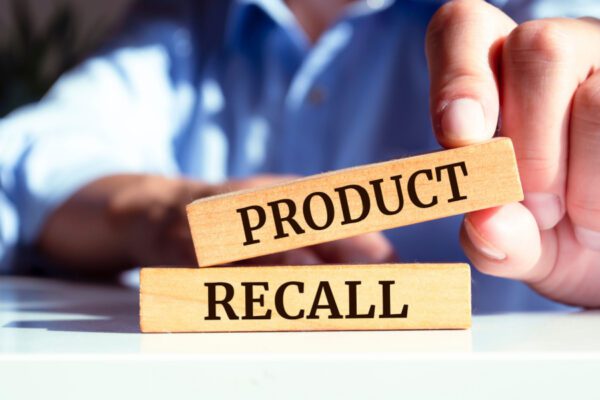As a manufacturer, your customers anticipate that your products will be safe and dependable. Despite your best efforts to ensure your goods are suitable for sale, various factors like design flaws, manufacturing defects, insufficient warnings, and unclear instructions can compromise product safety. If one of your products causes harm to a customer or another stakeholder, they might file a lawsuit against your business, potentially resulting in substantial legal expenses and settlements reaching six figures or more. Furthermore, after a product-related issue arises, your company must take corrective measures to minimize losses and safeguard its reputation. This may involve executing a product recall, a meticulous and heavily regulated process.
Product Recalls
In general, a product recall refers to the act of returning, exchanging, or replacing a product in the marketplace after a defect is discovered. These defects can be anything that hinders a product’s performance, harms consumers, or creates potential legal issues for producers.
In the United States, consumer product recalls are typically triggered when a stakeholder reports an issue to the Consumer Product Safety Commission (CPSC), which is the governing body responsible for developing uniform standards and addressing safety issues with consumer products. The CPSC has jurisdiction over approximately 15,000 different types of consumer products and was established after the Consumer Product Safety Act (CPSA) went into effect in 1972. The CPSA gives the CPSC the authority to pursue recalls and ban products under certain circumstances. It should be noted that the CPSC only oversees consumer product recalls; there are other governing bodies responsible for handling recalls related to food, motor vehicles, and other specialty products.
If you are a manufacturer, importer, distributor, or retailer of consumer products, you’re likely subject to the CPSA or other requirements. As such, it’s important to be prepared with a plan that allows your company to mobilize quickly following a product recall, avoid substantial civil penalties, and ensure long-term business success.
Have a Plan in Place
While recall plans are complex documents that should be created with the assistance of insurance and legal professionals, here are some tips to consider when conceptualizing your company’s plan:
- Designate and delegate. The plan should assign employees to specific duties so that everyone knows their responsibilities in the event of a recall.
- Keep track of production. The plan should account for proper recordkeeping. This makes it easier for your company to quickly locate and recall defective goods.
- Spread the word. The plan should include a public relations strategy. You should have detailed plans in place for who will notify the public, how they will do it and when.
- Adapt and improve. The plan should allow you to reflect on how it was implemented and make improvements as needed.
- Consider compliance. Ensure your plan accounts for all applicable codes, regulations, and industry standards.
- Use feedback. The plan should allow you to monitor customer complaints and use feedback to flag problematic products.
While it’s important to have a plan in place for responding to product issues, it’s equally important to prevent future product issues whenever possible. Continual improvement should be a constant goal, and you should review your company’s communication plan, risk assessment procedures, recall strategy, and similar activities on a regular basis. For further protection, the right insurance policy can be invaluable. For instance, product liability coverage can help protect your company from a variety of liability concerns, even if a defect is caused by an outside supplier. To learn more about your options, contact our manufacturing team today.
Material posted on this website is for informational purposes only and does not constitute a legal opinion or medical advice. Contact your legal representative or medical professional for information specific to your legal or medical needs.




